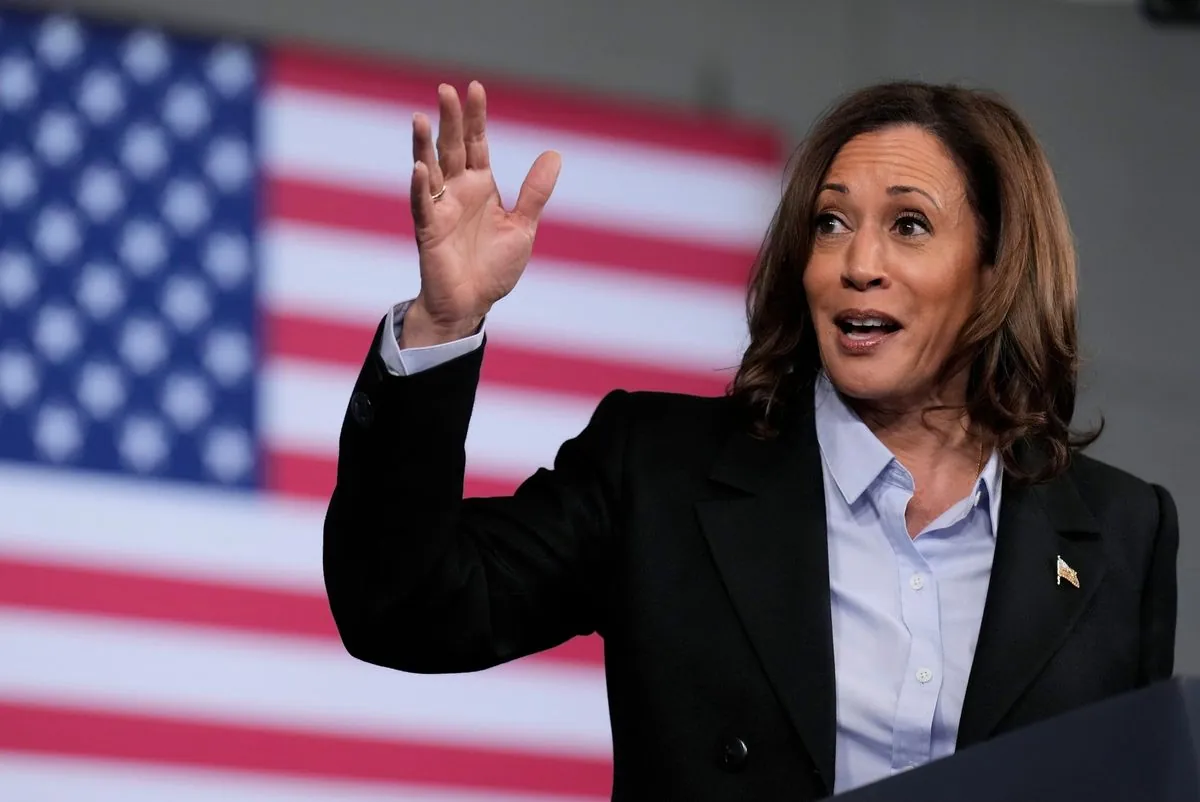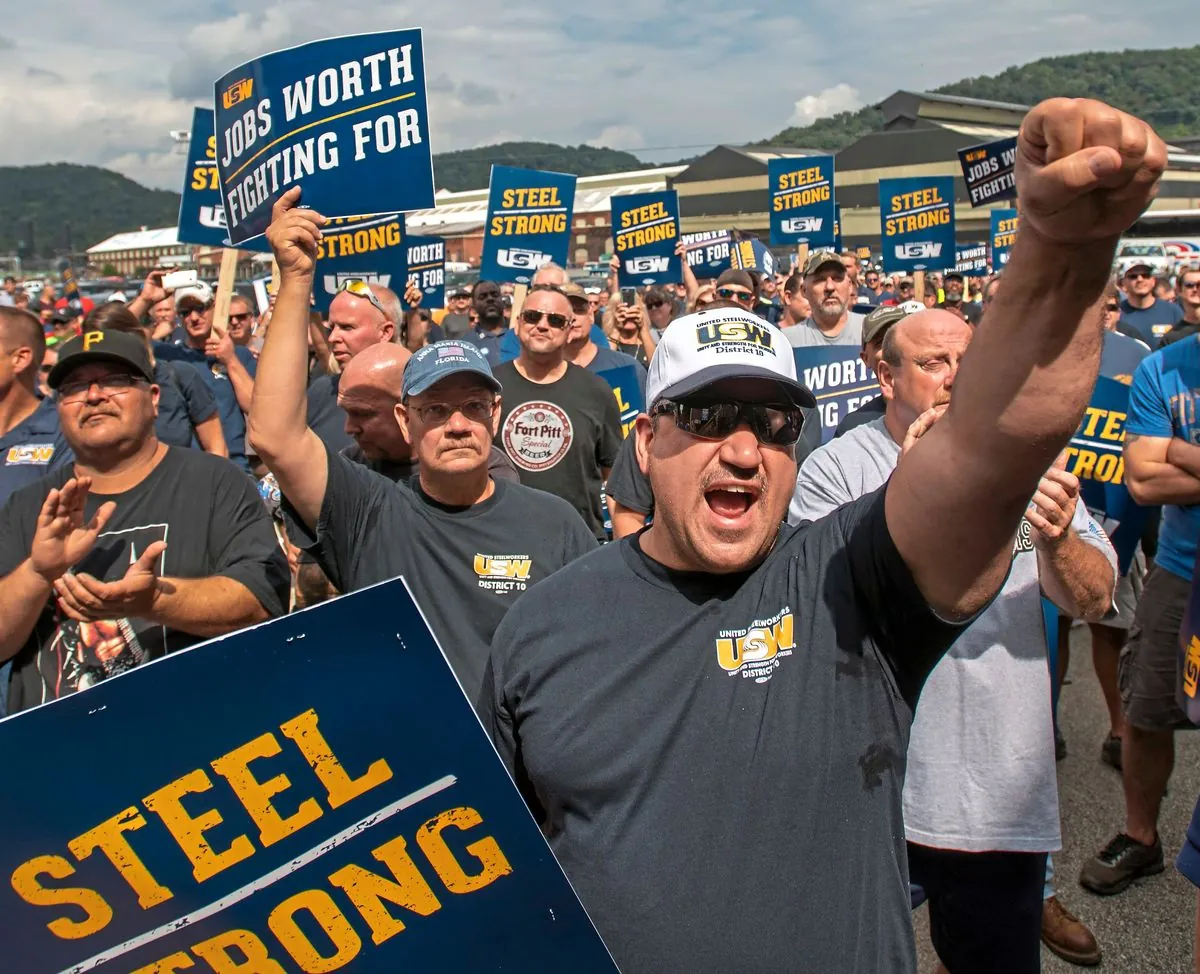Harris Rallies Union Support in Key States, Criticizes Trump's Labor Record
Vice President Kamala Harris campaigns in Michigan and Pennsylvania on Labor Day, emphasizing pro-worker policies and criticizing Trump's labor record. She addresses the U.S. Steel sale and seeks crucial union backing.

On Labor Day 2024, Vice President Kamala Harris embarked on a campaign tour through Michigan and Pennsylvania, two crucial "blue wall" states, to bolster support from organized labor. These states, along with Wisconsin, have historically been Democratic strongholds in presidential elections.
Harris emphasized the stark choice voters face in the upcoming November 2024 election between her pro-labor stance and former President Donald Trump's perceived anti-worker history. The Vice President's campaign strategically highlighted Trump's absence from Labor Day events, a holiday that has been federally recognized since 1894.
In Detroit, Harris criticized Trump's labor record, stating, "As president, we will always remember Donald Trump blocked overtime benefits for millions of workers and blocked efforts to raise the minimum wage." This reference to minimum wage laws harkens back to the Fair Labor Standards Act of 1938, which established national minimum wage standards in the United States.
"He appointed union busters to the National Labor Relations Board and he supported so-called right-to-work laws."
The National Labor Relations Board, an independent federal agency established by the National Labor Relations Act of 1935, plays a crucial role in enforcing labor law and collective bargaining rights. Harris's criticism of "right-to-work" laws, which prohibit mandatory union membership, resonated with the gathered union members who chanted "Trump's a scab" – a term historically used to describe workers who cross picket lines during strikes.
In Pittsburgh, once known as the "Steel City" due to its over 300 steel-related businesses, Harris addressed the proposed sale of U.S. Steel to Japan-based Nippon Steel Corp. The Vice President expressed her opposition to foreign ownership of this iconic American company, which was founded in 1901 and was once the world's largest steel producer and corporation.

Harris's campaign received support from other prominent Democratic figures. Michigan Governor Gretchen Whitmer, who has held office since 2019, criticized Trump's economic policies, saying, "When he was president, Donald Trump blew a $1 trillion hole in our national deficit to cut taxes for his wealthy friends and corporations."
The selection of Minnesota Governor Tim Walz as Harris's running mate further reinforces her pro-labor stance. Walz, a former U.S. Representative for Minnesota's 1st congressional district from 2007 to 2019, and his wife are both union members.
Union support, particularly from groups like the United Steelworkers founded in 1942, played a crucial role in the 2020 election and is expected to be equally vital in 2024. Harris's campaign aims to build on the legacy of President Joe Biden, who in 2023 became the first sitting president to walk a picket line.
As the truncated race to the White House intensifies, Harris's Labor Day campaign underscores the importance of worker support in key battleground states. With 64 days until the election, the contrast between Harris's active engagement with labor unions and Trump's absence from Labor Day events sets the tone for a heated campaign focused on workers' rights and economic policies.


































